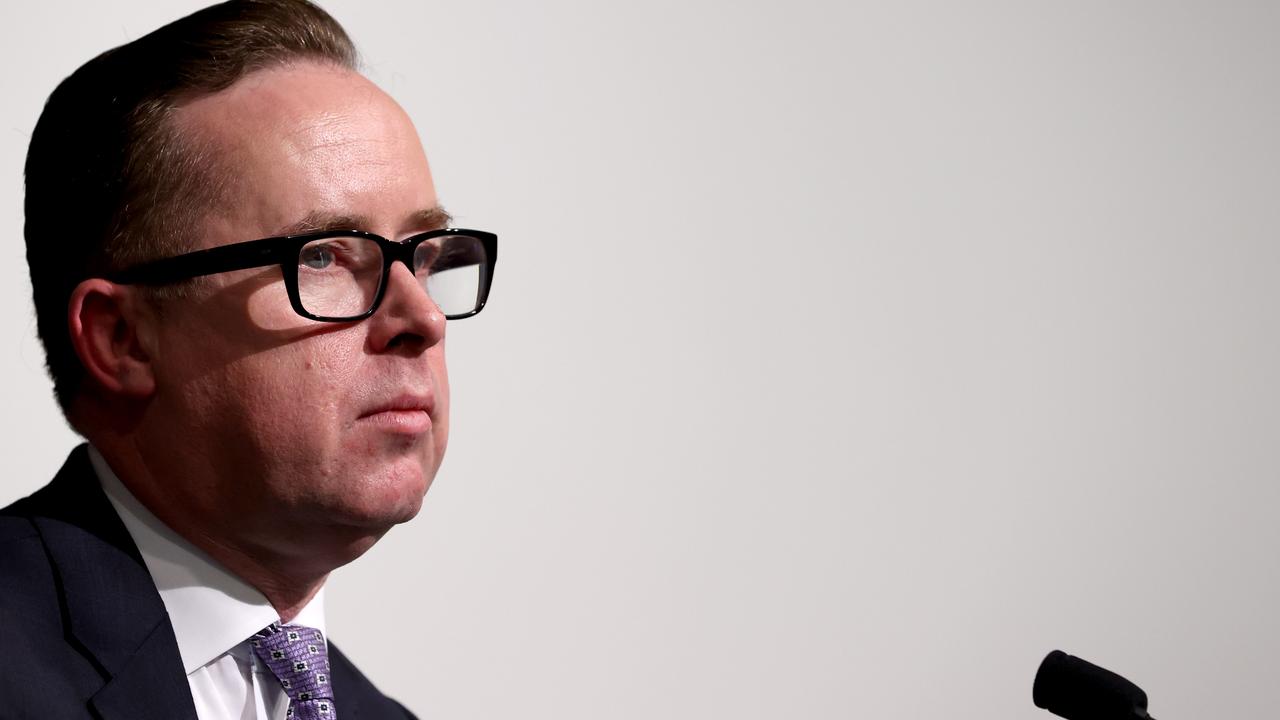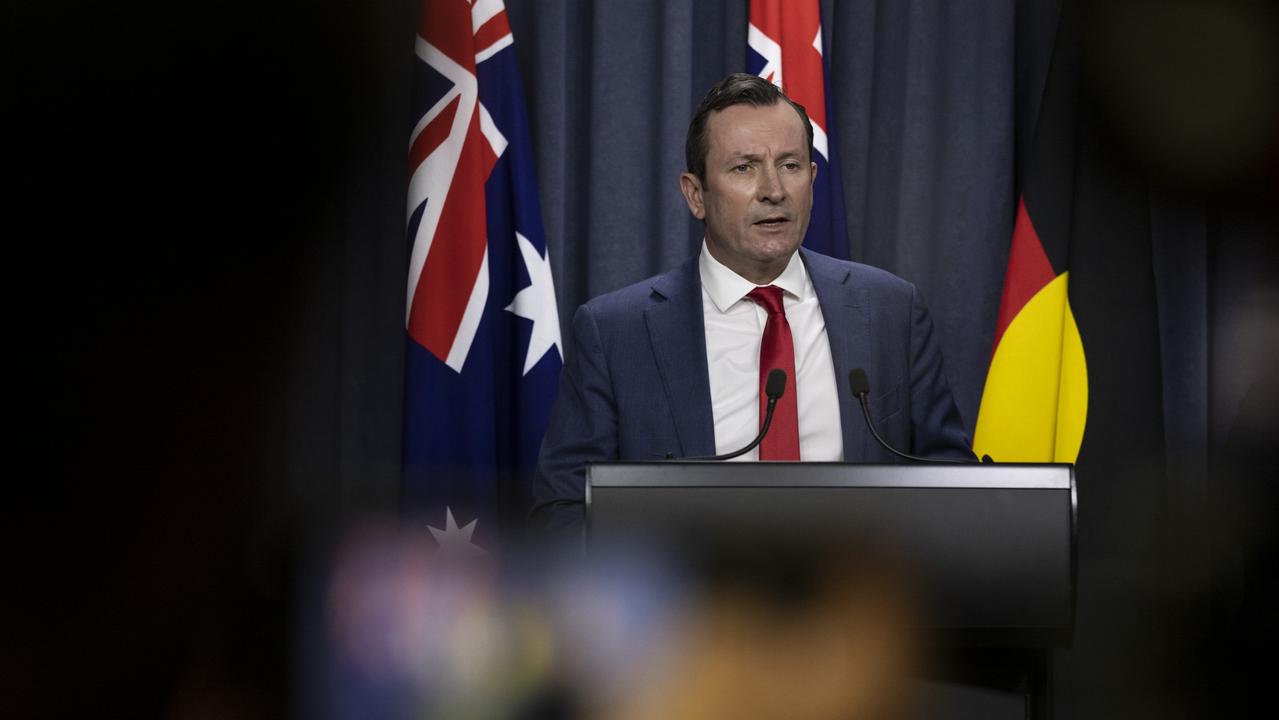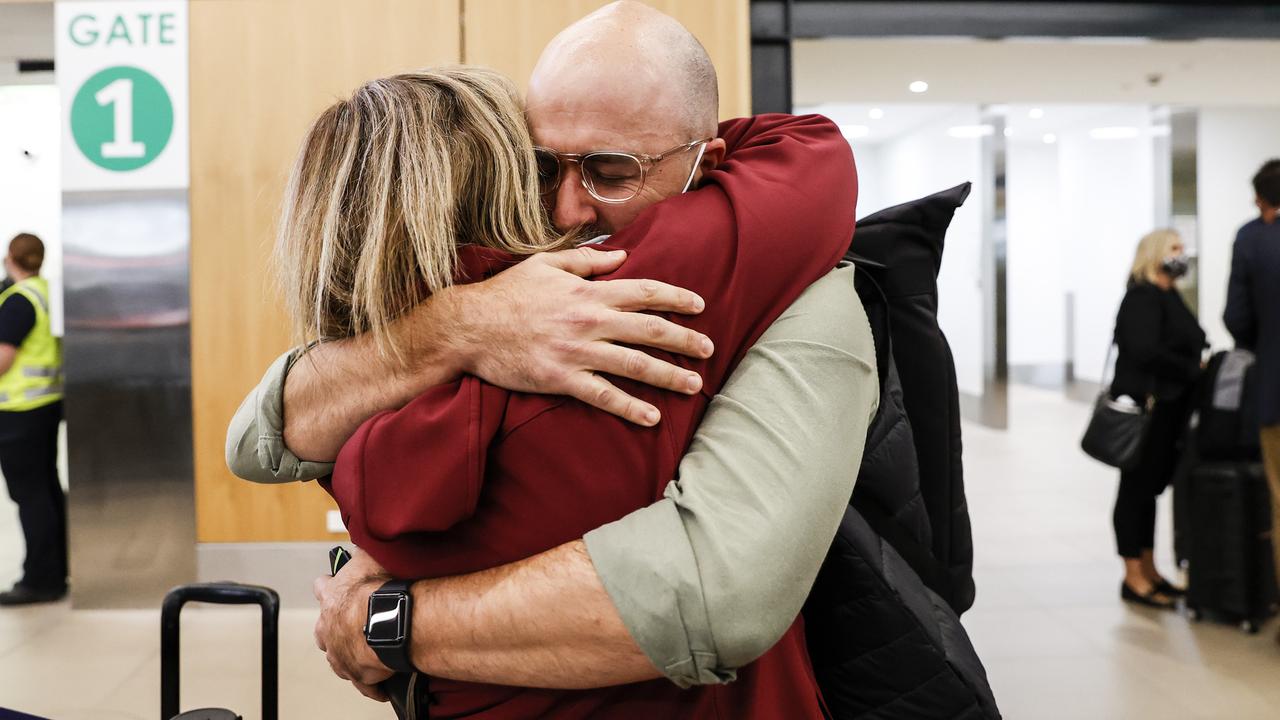Alan Joyce complains Qantas lost $60m due to WA border reopening delay
The airline is showing encouraging signs of recovery as travel resumes, but Alan Joyce couldn’t resist another dig at Western Australia.
Qantas is still posting sizeable losses but showing signs of bouncing back from devastation wrought by the Covid-19 pandemic, encouraging expert observers that it’s near-death experience is now behind it.
The national carrier on Thursday booked a half-year underlying loss before tax of $1.28bn, slightly better than Ord Minnett and Barrenjoey analysts’ forecasts.
It also trimmed its debt by $400m to $5.5bn – within its target range.
Moody’s Investors Service vice-president Ian Chitterer said the ratings agency expected the airline could slash its debt to as low as $4.4bn by the end of this financial year, with its balance sheet recovering substantially over the next 12-18 months as the threat of border closures eases.
“This supports our credit view that Qantas will emerge from the pandemic strongly positioned operationally and financially,” Mr Chitterer said.
But the rosier outlook didn’t stop chief executive Alan Joyce from taking a swipe at Western Australia, which he has repeatedly likened to North Korea for delaying its hard border reopening date from February 5 to March 3.
“Qantas certainly wasn’t the only business caught short when that opening was delayed,” Mr Joyce said.

“We had relied on that date and we’ve lost more than $60m as a result.
“Not to mention the thousands of customers who were disappointed.
“Hopefully, we can count on this new date and rebuild confidence in travelling to Western Australia.”
Despite the encouraging headline numbers, Qantas’ report still makes for grim reading, with the group reporting total flying was just 18 per cent of pre-pandemic levels during the half, while revenue losses since the start of the pandemic have ballooned to more than $22bn.
However, it was cash flow positive in the last three months of calendar 2021, largely as a result of the recovery in forward bookings.
Qantas said it had seized early momentum in travel demand as restrictions eased, but Delta-related lockdowns thwarted domestic travel for most of the first half, with the group only flying 42 per cent of its pre-Covid capacity.
And then Omicron hit, making the traditional summer peak “below expectations”.
“Concern regarding the Omicron strain had a dampening impact on travel demand in December that intensified in January and was compounded by the unexpected delay to Western Australia’s border opening,” Qantas said in its earnings statement.

“However, forward demand for both international and domestic services has improved during February – helped by Australia’s full reopening to all visa holders and the announcement of a new date for WA’s borders to open.
“This positive momentum is expected to continue in coming months.”
Qantas expects domestic capacity to be at 68 per cent of pre-Covid levels in the March quarter, rising to 90-100 per cent in the June quarter.
International capacity is expected to amount to 22 per cent of pre-pandemic levels this current quarter, increasing to 44 per cent over the following three months.
Ord Minnett said that was disappointing and it expected analysts would downgrade their expectations for Qantas’ full-year results.
Also on Thursday, Flight Centre booked a slightly higher first-half underlying net loss of $188m, up from $180m previously.

Chief executive Graham Turner said no specific full-year guidance would be given due to “the lack of visibility around the likely timeframes for – and extent of – recovery and government reactions to future variants”.
“In many ways, we are entering uncharted waters after two years of unprecedented restrictions,” he said.
“Grounded travellers will be keen to make up for lost time, but it is impossible to predict at this stage exactly how quickly that pent-up demand will return.
“The outlook now for travel is considerably brighter although the recent unrest in Russia and the Ukraine may impact the pace of recovery if it escalates significantly.”
But Flight Centre is targeting a monthly return to profitability for its corporate business in March-April and perhaps May-June for leisure travel.
RBC Capital Markets analyst Wei-Weng Chen said the results were “a substantial miss” and might disappoint the market.




